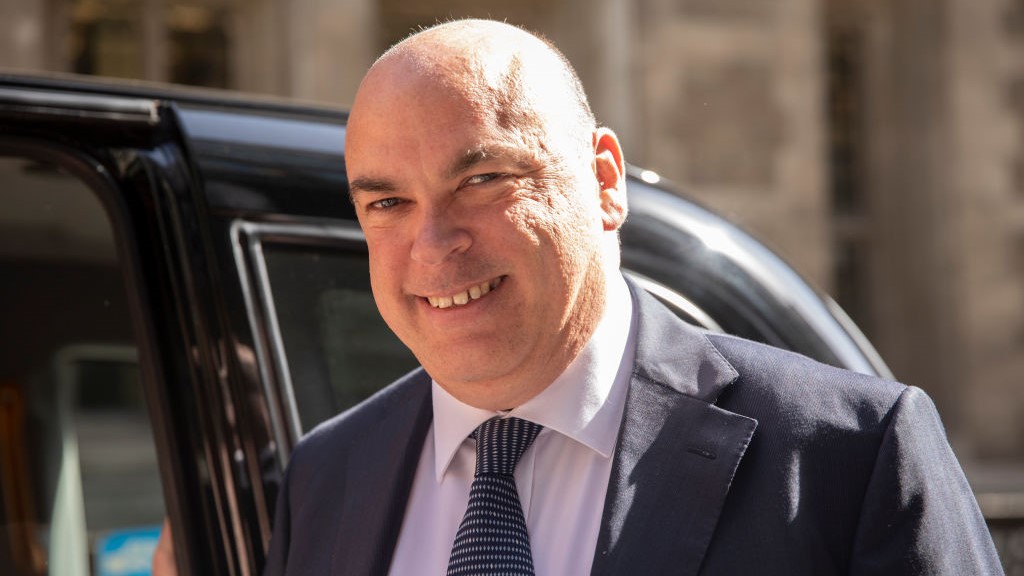'Britain's Bill Gates' finally extradited to California to face charges in 'one of the largest frauds ever prosecuted by the United States Department of Justice'
Autonomy founder Mike Lynch sold the company to HP for $11bn in 2011, then everything went pear-shaped.

The British technology tycoon Mike Lynch, once dubbed "Britain's Bill Gates", has been extradited to the US to face 17 criminal charges after a years-long fight. Lynch is the founder of the software company Autonomy, which was sold to Hewlett-Packard for $11bn in 2011. Lynch left Autonomy in 2012, and in the same year HP wrote down the value of the company by $8.8bn: The entrepreneur is accused of over-inflating the value of Autonomy in the period leading up to the sale, essentially cooking the books, and further accused of trying to obstruct the subsequent investigation into the matter.
The UK's Home Office confirmed to the BBC that Lynch was extradited to the US on Thursday, 11 May, which came after an April judgement that rejected his latest appeal (Lynch argued he should be tried in the UK). That judgement makes for some eye-popping reading, and begins by quoting the American prosecutors describing the case as "one of the largest frauds ever prosecuted by the United States Department of Justice." The value of the alleged fraud runs into the billions of dollars and per the court document refusing Lynch's appeal:
"The Applicant is accused of engaging in a conspiracy to provide dishonest financial and other information about Autonomy’s performance to the markets from 2009, and then to HP from about 2011 during the purchase negotiations, thereby dishonestly maintaining or inflating Autonomy’s share price, and hence, ultimately, the price which HP paid for it. The Applicant owned a substantial number of Autonomy’s shares, and so the alleged fraud benefitted him personally."
Further charges include attempting to obstruct justice in subsequent investigations, and of money laundering in relation to the money Lynch received. The document further notes that Lynch "held about 7% of Autonomy’s stock and he personally received about $800 million from its sale."
According to US court documents, authorities regard Lunch as being at "serious risk of flight" due to the length of time he's spent fighting extradition and his personal wealth. "There is nothing keeping him here, beyond the charges he faces in this court," said District Judge Charles Breyer. Thus Lynch has had to post bail of $100 million and is now living under house arrest in San Francisco, guarded by private security and under video surveillance which he has to pay for. Lynch's net worth is estimated at between £988m ($1.235 bn) and £1.1 bn ($1.375 bn).
At the time of the sale, Autonomy was the UK's biggest software company (or the accounts said so, anyway) and the HP deal was the largest-ever takeover of a British tech firm. HP's purchase was intended to help it diversify away from hardware, with Autonomy specialising in software that could extract information from things like phone calls, email and video.
Since the writedown in value, HP, Lynch and Autonomy's former chief financial officer Sushovan Hussain have been in litigation. Hussain was jailed for five years and fined $4 million by a US court in 2019 on 16 counts of fraud, securities fraud and other charges.
Keep up to date with the most important stories and the best deals, as picked by the PC Gamer team.
In 2022, HP won a civil fraud case against Lynch and Hussain. The judge in that case said the core of the matter was HP's claim "they were fundamentally misled and are victims of fraud", while Lynch and Hussain argued they were scapegoats for "buyer's remorse coupled with management failings". The judge found HP "substantially succeeded" in backing up its claims, though the ruling remains subject to appeal and the amount of damages has not yet been decided (HP had asked for $5 billion).
A US court filing said: "After lengthy extradition proceedings in the United Kingdom, Defendant Michael Richard Lynch has finally landed on our shores to stand trial, accompanied by the United States Marshals Service."

Rich is a games journalist with 15 years' experience, beginning his career on Edge magazine before working for a wide range of outlets, including Ars Technica, Eurogamer, GamesRadar+, Gamespot, the Guardian, IGN, the New Statesman, Polygon, and Vice. He was the editor of Kotaku UK, the UK arm of Kotaku, for three years before joining PC Gamer. He is the author of a Brief History of Video Games, a full history of the medium, which the Midwest Book Review described as "[a] must-read for serious minded game historians and curious video game connoisseurs alike."

